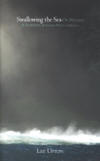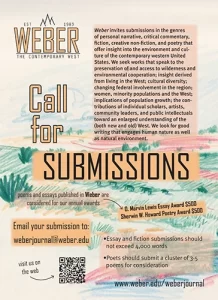Swallowing the Sea
“This is a book about ambition,” Lee Upton writes in the first section (aptly titled “Ambition”) of Swallowing the Sea. It would seem that Upton’s own ambition with this book is to discuss writing as a writer, and yet the book does so much more. For anyone in love with writing, Swallowing the Sea is an homage to the delicate, painful, and (for some) necessary impulse to write. Upton explores the process of writing, the hurdles and frustrations along the way, and the fervor of being an avid reader, while employing personal anecdotes, literary criticisms, and poetical metaphors to make sense of writing’s place in our culture.
“This is a book about ambition,” Lee Upton writes in the first section (aptly titled “Ambition”) of Swallowing the Sea. It would seem that Upton’s own ambition with this book is to discuss writing as a writer, and yet the book does so much more. For anyone in love with writing, Swallowing the Sea is an homage to the delicate, painful, and (for some) necessary impulse to write. Upton explores the process of writing, the hurdles and frustrations along the way, and the fervor of being an avid reader, while employing personal anecdotes, literary criticisms, and poetical metaphors to make sense of writing’s place in our culture.
Upton takes us on a literary journey, opening doors into different channels of the writing process, which become the sections or chapters of the book: Ambition, Failure, Boredom, Bigamy for Beginners, Purity and Secrecy. “Bigamy for Beginners” was probably the most culturally relevant section, in which Upton tackles the challenging issue of writers who experiment in multiple genres, but identify firstly with one genre (whether by their own doing or that of the publisher/marketing department/audience). I admit that there is difficulty in writing across genres, and yet, I take a bit of issue with Upton’s stance. It isn’t cheating to write poetry if you have only published fiction, or if you self-identify as a playwright, for example. She uses the language of an “illicit liaison” to describe this movement, but I don’t think there’s anything cheating about exploring. I see the working in multiple genres as only natural; I don’t read one thing, so why only write one thing? Write in the mode that best tells the story.
“When I write I gain a recognition of both the boundaries of the sense and my boundaries as a writer, along with the hope of trespassing against those boundaries,” writes Upton. We see her trespassing boundaries in this work by not quite restricting it to any one genre. It is something beyond and distinct from memoir or a how-to on craft; it is a reflection, an ode to literature, a lyricism, a confession. In this way she takes up her own challenge of working across genres.
Upton’s sections on ambition, failure, and boredom seem to fit for a book on writing—writers can tell their own stories about these three qualities in their own works. But there is a less clear trajectory in the “Purity,” “Bigamy for Beginners,” and “Secrecy” chapters, which I found compelling. At times, though, I was turned around in her labyrinthine prose, such as in “Purity,” which moved me from Sylvia Plath to Elizabeth Taylor to the birth of Upton’s daughter without any sure direction. It is easy to be swept away in Upton’s lyricism, and for that I’ll forgive her for any slippery path she leads me down. In that sense, this book may not be (to use Upton’s words) a pure work, but as she reminds us: “absolute purity is unattainable and thus belongs to the country of the imagination. But so much depends on the quality of the imagination.”
Upton’s take on narrative nonfiction is certainly imaginative, and she makes even the topic of boredom—“an invasive species”—fascinating. Boredom has weight, she explains, and yet we can write about it, we can prevent it from taking over. Obsession can help defeat boredom, and exploring what bores one’s character can aide in the writing process (a tactic that I soon hope to try out on my characters). She makes a fascinating claim that Dorothy of the Wizard of Oz is an exemplar of a writer—steeped in her own boredom, she constructs the ultimate fantasy and use of her imagination. If I only I could construct an Oz when I am that bored!
The disjointed, fractured structure of Upton’s book is perhaps a nod to the poet in her (her “first” genre). Upton observes all of the nuances of writing—how it engages our senses, plays on our traumas, feeds our souls. She also fires up the reader in me—I left the book with an abundant reading list, later indulging myself in some Muriel Spark and MFK Fisher. Upton shows us to look with new eyes, fresh eyes, new vulnerabilities. She sees the literary in everything, even so far as seeing Dr. Frankenstein as a metaphor for a writer—a writer who needed to revise.
It is tempting to quote every remarkable line about writing in this book (for example, the line from which the title is taken: “whoever imagines swallowing the sea imagines powerfully”), but to do so would overwhelm this essay; it is a book to be experienced for oneself. Upton reminds us that the act of being a reader—of gathering these writers’ words and thoughts and presenting them in her own way—gives us some sort of ownership. Swallowing the Sea, then, is just as much about being a reader as being a writer.





